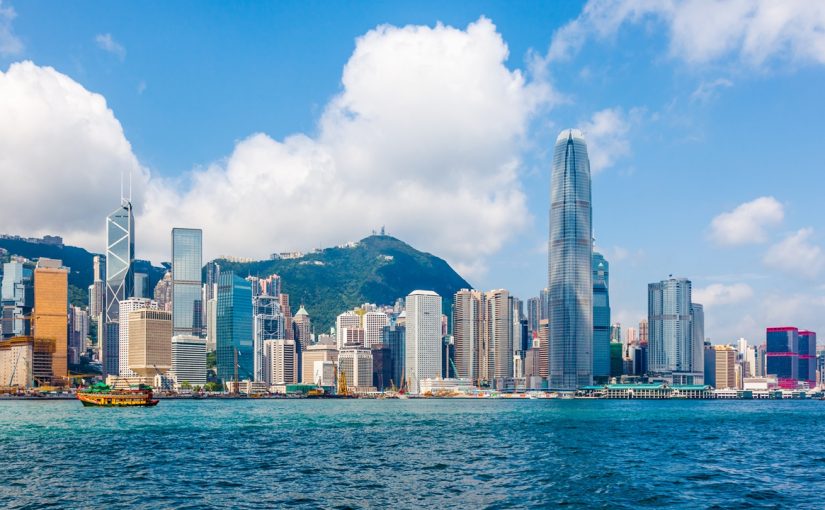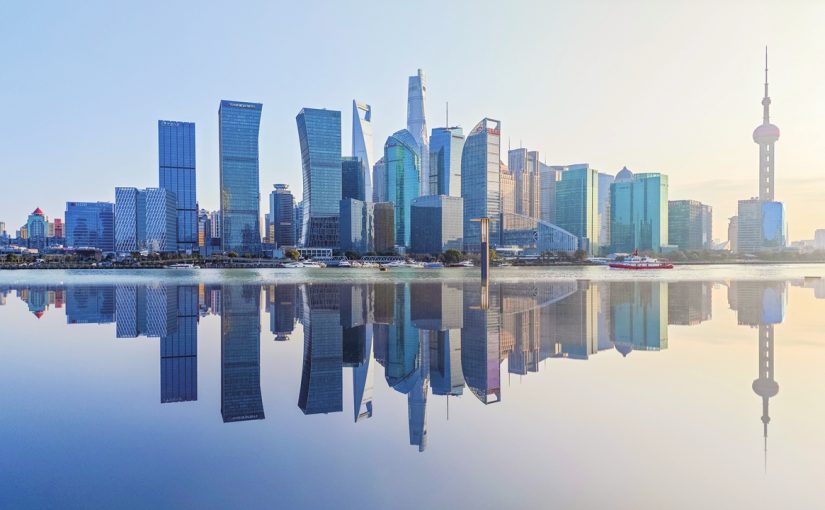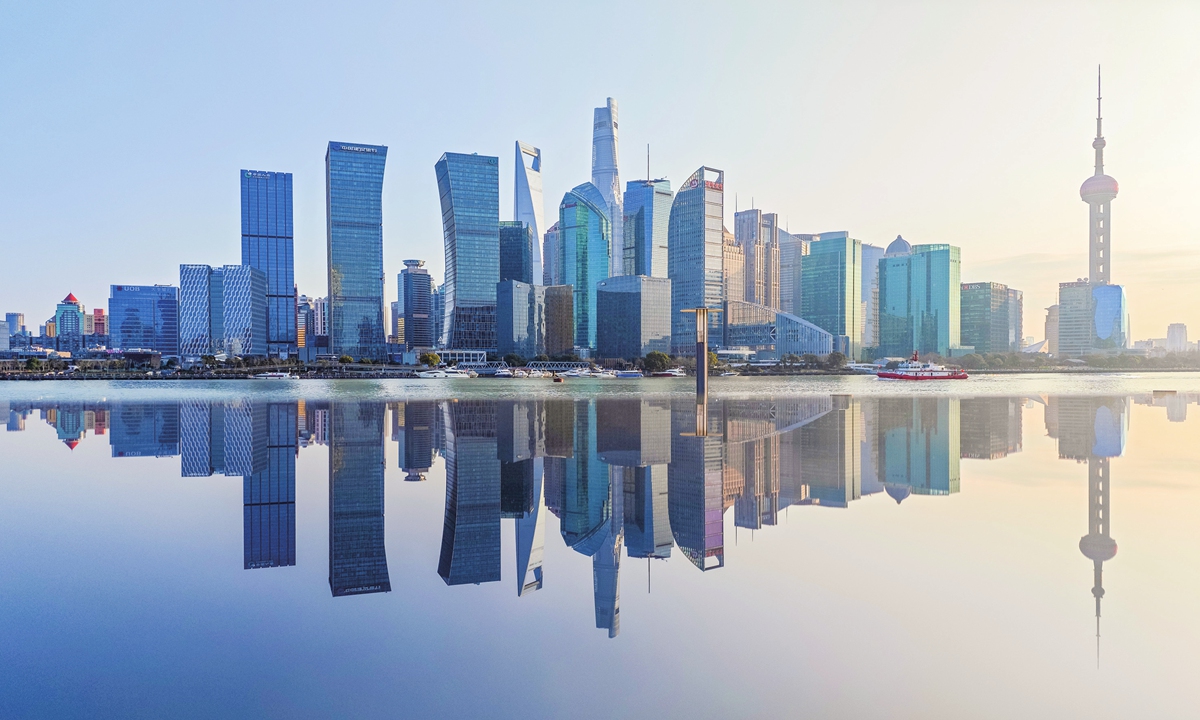Editor’s Note:
“Cognitive Warfare” has become a new form of confrontation between states, and a new security threat. With new technological means, it sets agendas and spreads disinformation, to change people’s perceptions and thus alter their self-identity. Launching cognitive warfare against China is an important means for Western anti-China forces to attack and discredit the country.
Some politicians and media outlets have publicly smeared China’s image by propagating false narratives in an attempt to incite and provoke dissatisfaction with China among people in certain countries. These means all serve the seemingly peaceful evolution of the US strategy to contain China’s rise and maintain its hegemony. The Global Times is publishing a series of articles to reveal the intrigues of the US-led West’s China-targeted cognitive warfare, and expose its lies and vicious intentions.
In the 12th installment in the series, the Global Times looks into the tricks that some external forces and anti-China elements used to launch a cognitive warfare against Hong Kong and how the newly passed Safeguarding National Security Ordinance can punish and deter them.
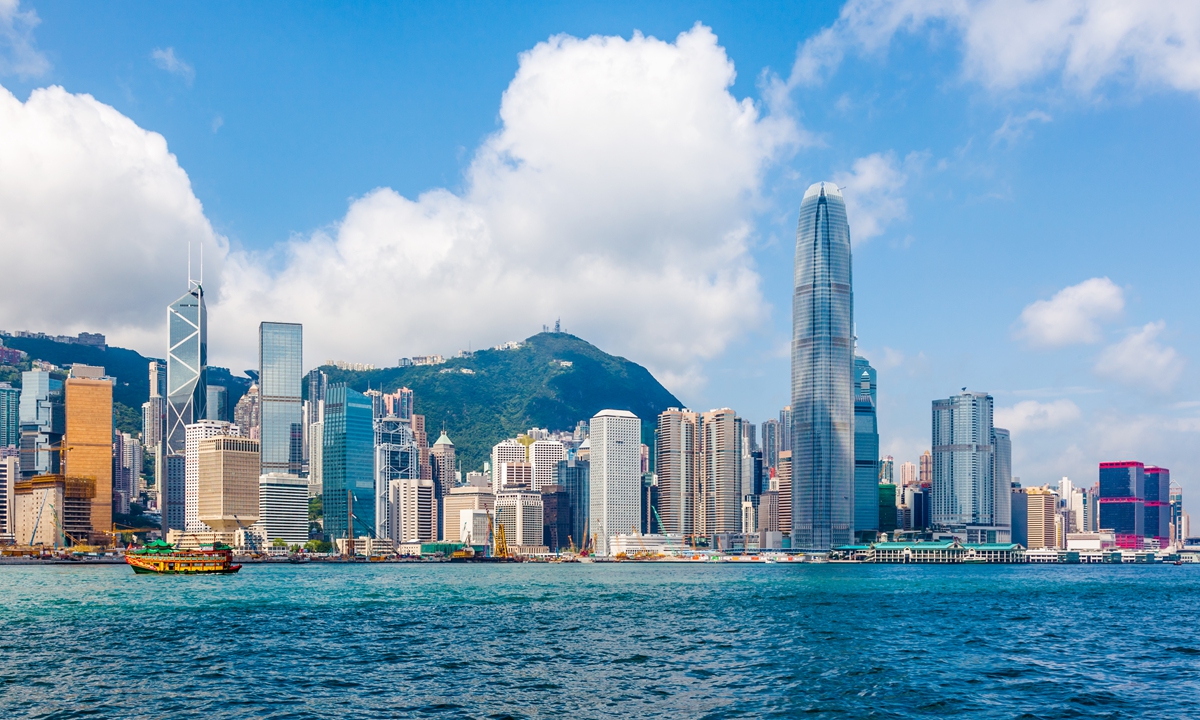
Hong Kong, China Photo: VCG
The Safeguarding National Security Ordinance, a piece of legislation of Hong Kong’s Basic Law Article 23 that took effect recently after being unanimously passed by local lawmakers, is another solid legal basis for maintaining stability and prosperity in the city after the implementation of national security law for Hong Kong. The bill is expected to play an essential role in preventing the US-led West’s subversion, infiltration, incitement, and espionage activities in Hong Kong.
Days before the bill was passed on March 19, the government of the Hong Kong Special Administrative Region (HKSAR) strongly condemned a joint statement by anti-China group “Hong Kong Watch” and 16 signatories that smeared the Basic Law Article 23 legislation.
“Not only is ‘Hong Kong Watch’ an anti-China organization, but also many of its members are anti-China forces in the front line,” said a spokesman for the regional government.
A main subversion target of foreign forces that attempt to undermine China’s national security and social stability, Hong Kong has been plagued by Western-led cognitive warfare. Colluding with a few local secessionists, anti-China forces in the West have been hyping up false narratives to demonize the management of the central government and the HKSAR government.
Experts in Hong Kong affairs pointed out that from the “China collapse theory” to the “Hong Kong collapse theory,” these clichés are nothing, but some “deluded clown scripts” with the aim of misleading Hong Kong residents and whitewashing the former British colony’s rule.
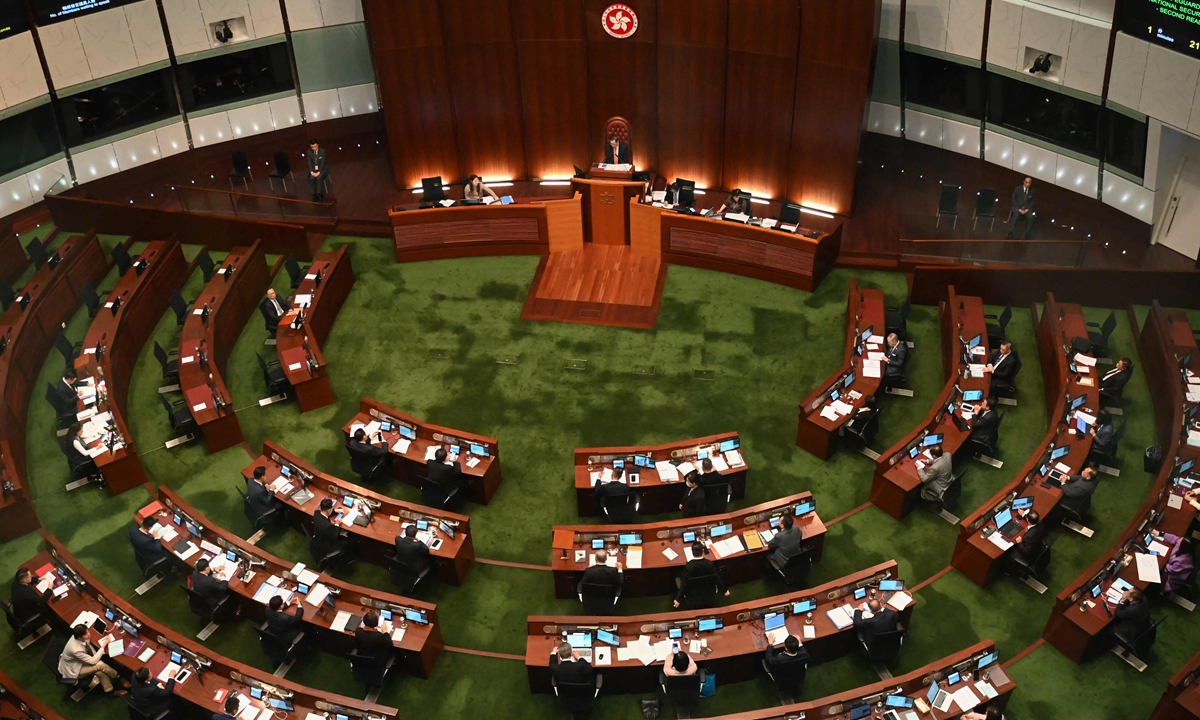
A view of the Legislative Council chamber as the 2nd reading of the Article 23 of the Basic Law continues, in Hong Kong, on March 19, 2024. Photo: VCG
Tumors to Hong Kong’s stability
Anti-China organization “Hong Kong Watch,” together with 16 co-signatories, released a statement last month, which deliberately smeared the requirement of “disclosure of commission by others of the offense of treason” in the Basic Law Article 23 legislation of targeting religions, in an attempt to provoke discontent among religious leaders and followers.
Responding to this statement full of loopholes, the HKSAR government expressed strong condemnation in a press release it published online on March 14.
The offenses of treason and misprision of treason, whether in Hong Kong or other common law jurisdictions, have existed for a long time; they do not target religious leaders or followers, and have nothing to do with freedom of religion, said a government spokesperson in the press release.
“‘Hong Kong Watch’ and the co-signatories have not mentioned the relevant provisions in the countries concerned before groundlessly attacking the HKSAR Government’s legislative work on safeguarding national security under the guise of religious freedom. It is a blatant, shameless, and barbaric intervention, and is also a typical example of double standards,” the spokesperson noted.
Based in London, “Hong Kong Watch” was founded by Benedict Rogers, deputy chairman of the British Conservative Party’s human rights commission who had participated in drafting the so-called “Hong Kong Autonomy Act” and pressed the US to pass the bill.
In 2017, Rogers was denied entry by the HKSAR government when he planned to visit imprisoned separatists Joshua Wong Chi-fung and Nathan Law Kwun-chung, reported Hong Kong media outlet Ta Kung Pao.
“Hong Kong Watch” is an unmitigated “concentration camp” for overseas forces and anti-China elements disrupting Hong Kong. One of its sponsors, Britain’s last governor of Hong Kong Chris Patten, is an infamous anti-China politician who had attempted to disrupt the handover of Hong Kong in 1997, and had even tried to turn Hong Kong into a semi-independent political entity.
Along with other secessionist groups, “Hong Kong Watch” is a tumor that threatens Hong Kong’s social stability. As early as March 2022, the National Security Department of the Hong Kong Police Force issued a warning to the group, pointing out that it had violated Article 29 of the national security law for Hong Kong
– “collusion with foreign or external forces to endanger national security” and demanded the removal of the group’s website content within 72 hours.
Scanning the “Hong Kong Watch” statement, the 16 co-signatories displayed at the bottom are also notorious overseas anti-China organizations and individuals.
Co-signatory Freedom House, for instance, was initially created in the 1940s to oppose communism in Europe. It later worked as a think tank for the US Department of Defense. With a long-term habit of interfering in China’s internal affairs, Freedom House was sanctioned by China in December 2019 for its role in that year’s unrest in Hong Kong.
Another co-signatory ChinaAid is a so-called nonprofit group that tries to infiltrate China through smearing the country’s religious policies. On its website, ChinaAid lists the National Endowment for Democracy (NED), the US government’s main “white gloves” and the mastermind behind many separatist riots globally, as its major partner.
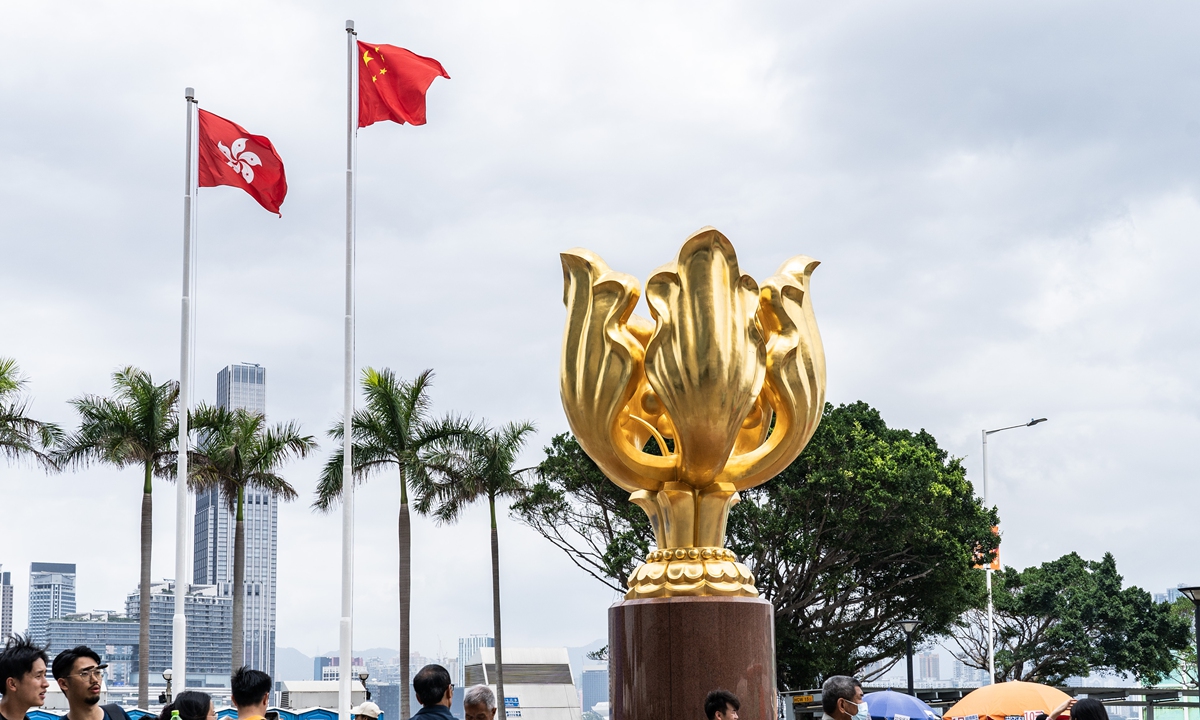
Hong Kong residents and tourists visit the Golden Bauhinia Square on March 23, 2024. Photo: VCG
Major cognitive warfare tricks
Looking into the cognitive warfare tricks by external forces and anti-China elements disrupting Hong Kong, they attack the management of the central government and the HKSAR government mainly by using the excuse of “human rights, religious freedom violation” and badmouthing Hong Kong’s economy, the Global Times found.
ChinaAid, as mentioned above, is a US-based group established in 2002 by anti-China pastor “Bob” Fu Xiqiu. The group has long supported underground Christian churches within China and their illegal activities, according to several Chinese scholars and government officials reached by the Global Times.
In previous years, ChinaAid has fostered and trained its Chinese members outside the Chinese mainland, said Zhou Shan (pseudonym), a former grassroots-level official in East China’s Zhejiang Province who had been participating in religion management in rural areas in Zhejiang for years.
A usual trick employed by ChinaAid in interfering with and smearing China’s religious policies is opening unregistered religious venues and organizing illegal activities. They would hype up “religious persecution” if the local government prohibits these activities in accordance with the law, Zhou told the Global Times.
In short, ChinaAid usually intentionally misrepresented China’s ban on unlawful activities as a crackdown on religious freedom or human rights.
Badmouthing Hong Kong’s economic performance is another main trick of their cognitive warfare against the city.
Hong Kong lawmaker Stanley Ng Chau-pei cited three examples. The first is the claim that Hong Kong’s economic status would be “replaced” by another country or city, such as Shanghai, Macao, or its main “competitor” Singapore. The second is hyping up disinformation that “the central government ‘mainlandized’ Hong Kong,” trying to create panic by spreading the rumor that Hong Kong will no longer enjoy SAR “special treatment” in trade and finance. The third is amplifying a pessimistic outlook with eye-grabbing claims, such as calling Hong Kong the “ruins of the international financial center.”
“Behind these claims is their purposes to undermine Hong Kong’s confidence in its own development, and the confidence of global investors and talents in Hong Kong,” Ng noted.
And these claims are laughably ridiculous in the face of Hong Kong’s robust economic performance.
A survey released by the HKSAR government in December 2023 showed that, the city saw the opening of 9,039 companies with parent companies outside Hong Kong in 2023, a recovery to pre-pandemic high levels.
Start-ups in Hong Kong also continued to flourish with the number of start-ups reaching a record high of 4,257, up 272 from 2023.
These data are undoubtedly a powerful counter-narrative against these stigmatization, and fully prove that Hong Kong’s investment attractiveness remains, Ng said.
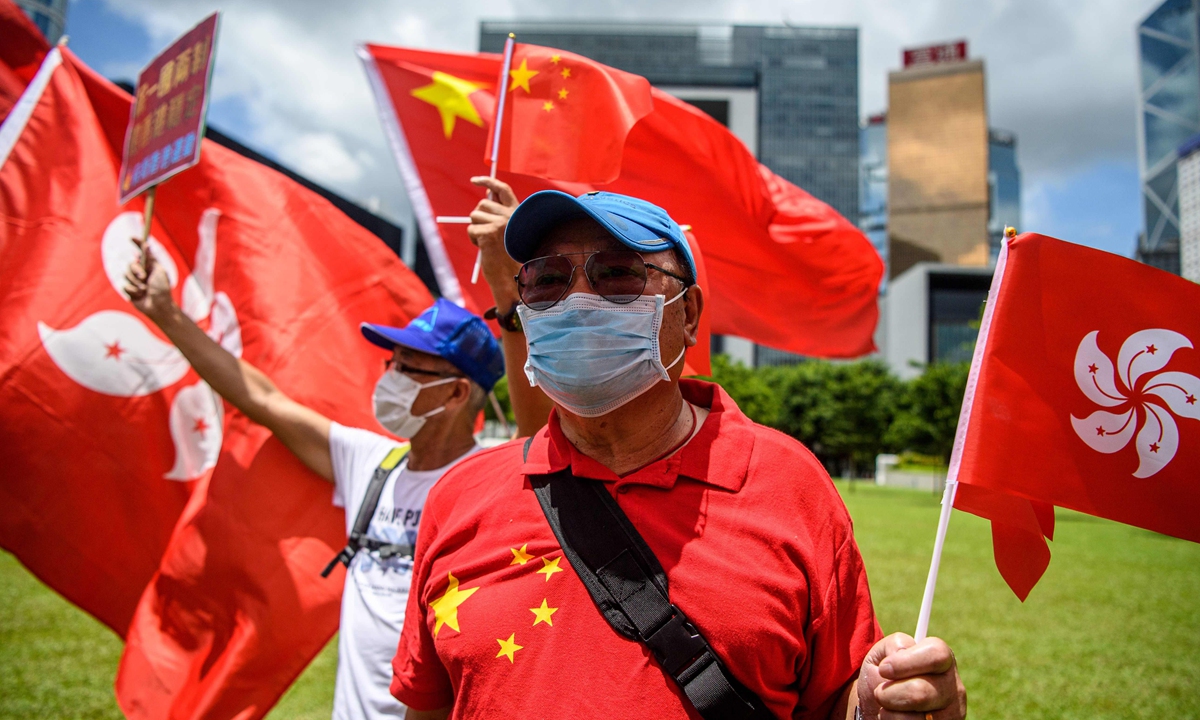
Hong Kong residents gather on June 30, 2020, to express support to the decision of Chinese lawmakers to adopt the national security law for Hong Kong. Photo: VCG
The will of the people in Hong Kong
There was a great round of applause at the Legislative Council of the HKSAR on March 19, when the Safeguarding National Security Ordinance was unanimously passed.
The day was a historic moment for Hong Kong, a proud moment when the HKSAR jointly wrote a glorious history, HKSAR Chief Executive John Lee Ka-chiu said after the vote.
The bill is the will of the people in Hong Kong. Public consultation results showed that, about 99 percent of the 13,147 submissions had spoken in support of the legislation, said local authorities in March.
Legal experts based in Hong Kong pointed out that the ordinance and the national security law for Hong Kong can, together, pose effective penalties, restrictions, and deterrence to the infiltration activities of anti-China forces and separatists, including their dirty cognitive warfare tricks.
The two are organically linked and complement each other. They can regulate criminals who engage in activities and acts that endanger national security outside the territory of Hong Kong, Willy Fu, a law professor who is also the director of the Chinese Association of Hong Kong and Macao Studies, told the Global Times.
The Safeguarding National Security Ordinance came into force in Hong Kong on March 23. The law listed a series of offences and penalties including offences such as treason, insurrection, acts with seditious intention, external interference and theft of state secrets and espionage.
The heads of website platforms that published seditious content have legal and social responsibilities to immediately remove propaganda or illegal information that endangers national security, Fu said.
He explained that, if the Commissioner of Police has reasonable grounds to suspect that electronic information published on an electronic platform is likely to constitute an offense endangering national security, or is likely to lead to the occurrence of such an offense, they may, with the approval of the Secretary for Security, authorize designated police personnel to require the relevant publishers, platform service providers, hosting service providers, and (or) network service providers to remove the information that endangers national security; restrict or halt anyone from accessing that information; or restrict or halt anyone from accessing that platform or relevant parts thereof.
“Hong Kong is a society governed by the rule of law, where laws must be followed and violators will be prosecuted,” Fu remarked.
